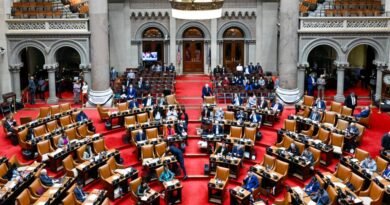Unleashing the Potential of Web3: Creating the Internet of Our Dreams
Trillion-dollar digital giants like Google and Amazon dominate the online landscape. However, they often prioritize their own interests over user privacy, fair competition, government regulations, and ethical practices. Governments worldwide are stepping in to address these imbalances. In the US, Google is facing an antitrust trial, while Canada is pushing for a law that mandates Facebook and Google to share more profits with media companies. Additionally, the EU’s Digital Markets Act aims to ensure fair treatment of user data. Despite these efforts, fixing the issue requires more than just government intervention. Even the web’s founder, Sir Tim Berners Lee, acknowledges that technology giants are corrupting his original vision. Privacy is continuously compromised, social media negatively impacts children, and content creators lose control over their work. However, new technologies under the umbrella term Web3 offer hope for a course correction in the digital age. Web3 encompasses technologies like blockchain networks (such as Ethereum), artificial intelligence (AI), the Internet of Things (IoT), and extended reality (XR). Finance is one area where Web3 has already made an impact. Fueled by tokenization, individuals have an economic stake in their digital presence and can transact directly without intermediaries. Stablecoins, particularly those backed by US dollars, have gained significant traction, attracting attention from traditional financial players. Web3 also provides opportunities for creators to monetize their work more fairly and conveniently. Smart contracts ensure self-execution, reducing the need for legal enforcement. Already, creators have earned billions of dollars through the sale of non-fungible tokens (NFTs). Web3 puts power back into the hands of creators, allowing them to earn from resales without relying on middlemen. Furthermore, Web3’s decentralized infrastructure aims to address the central control exerted by Web2 companies. By decentralizing core functions like internet connectivity, storage, and spatial data, users and multiple companies share control. This evolution will have a profound impact, with user-owned networks valued at trillions of dollars by 2028. Web3 has the potential to transform internet users into internet owners, empowering them and challenging the dominance of big-tech companies. However, it is important to recognize that Web3, like its predecessors, has limitations and risks. Token proliferation raises concerns about gambling and speculation, while regulations surrounding Web3 remain unclear. Co-optation by existing leaders and the emergence of new ultra-powerful entities could perpetuate the mistakes and inequities of Web2. Technology itself is neutral, and its impact depends on how it is wielded by creators and users. The advent of Web3 heralds a new era where peer-to-peer transactions, user privacy, and opting out of powerful platforms are protected by code.
Source link




